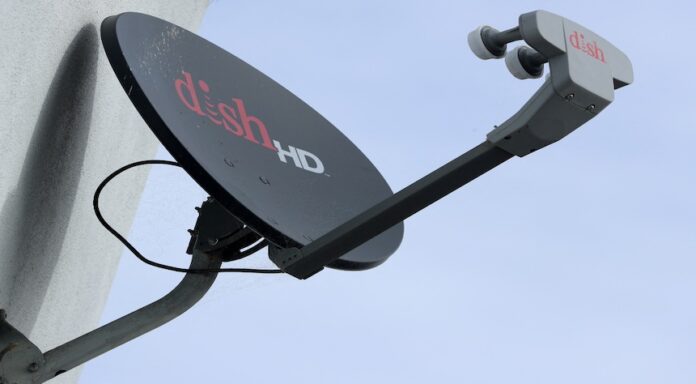It’s great that Americans can buy as much justice as they can. If you have $113,000 to spend on justice, you will be able to achieve anything. Last week, the Department of Justice dropped a civil lawsuit of $3.3 billion against Dish Network. In a coincidental coincidence, at the end of the last year, Dish Network’s founder Charlie Ergen, and his wife, donated just under $113,000 to Biden-Harris.
Dish received a grant of $50 million in January to expand coverage for 5G across the country. This is yet another shocking coincidence. The Biden administration provided the grant, which came from the $1.5 billion CHIPS and Science Act fund.
The New York Post reported that on Jan. 12, just two days after the announcement of the grant, the DOJ intervened to tell Vermont Telephone, the plaintiff in the suit, to either accept a settlement, or it would drop its case against Dish.

The Post Notes:
According to the Wall Street Journal, the dispute started in 2015, when Dish bid $13.3 billion for wireless licenses in an auction organized by the Federal Communications Commission to assist “very small businesses,” which are defined as companies with revenues less than $15 million.
Dish, with the help of the BlackRock asset manager, bought nearly half of the wireless spectrum licenses sold at auctions by smaller companies in which they held controlling stakes. They qualified for a discount of 25%.

This allowed Dish, before it even offered a cellphone service, to bid on a spectrum worth $3.3 billion for Boston, New York, and Chicago.
Bennett Ross, lead attorney for Vermont Telephone said that this was no coincidence. He added, “With the coming election, it looks like the latest example in the DOJ’s “two-tiered” justice system, where the politically connected and well-off are treated differently, while the rest of us are treated the same.” Ross also accused Dish, of “distorting the FCC auction procedure,” as well as “thwarting the deployment of wireless spectrum to the benefit of the public”.
Let’s recap: campaign donation, lawsuit dropped, huge grant awarded, and BlackRock. Ross may have a point, especially when one considers that in 2022 and 2023, the DOJ Civil Division opposed dismissing the suit. It is also a rarity for the division to interfere in fraud claims.

Ross told The Post:
We are aware that since 2018, relators have brought approximately 4,000 [similar] cases under the False Claims Act. The DOJ has moved to dismiss approximately 65 of these cases or less than 2 percent. In those cases, the DOJ sought to dismiss the case because it had a fatal flaw, but this was not the case in Vermont Telephone’s claim against DISH.
No one is surprised by government corruption at this point in American history. This is especially true when it involves this administration. It is difficult to be shocked by the fact that the action was so obvious and even clumsy in this instance. This story may not be as headline-grabbing as the border crisis, current wars, and inflation, but it serves to remind us of the White House’s leadership and what can be expected in the next four years.




